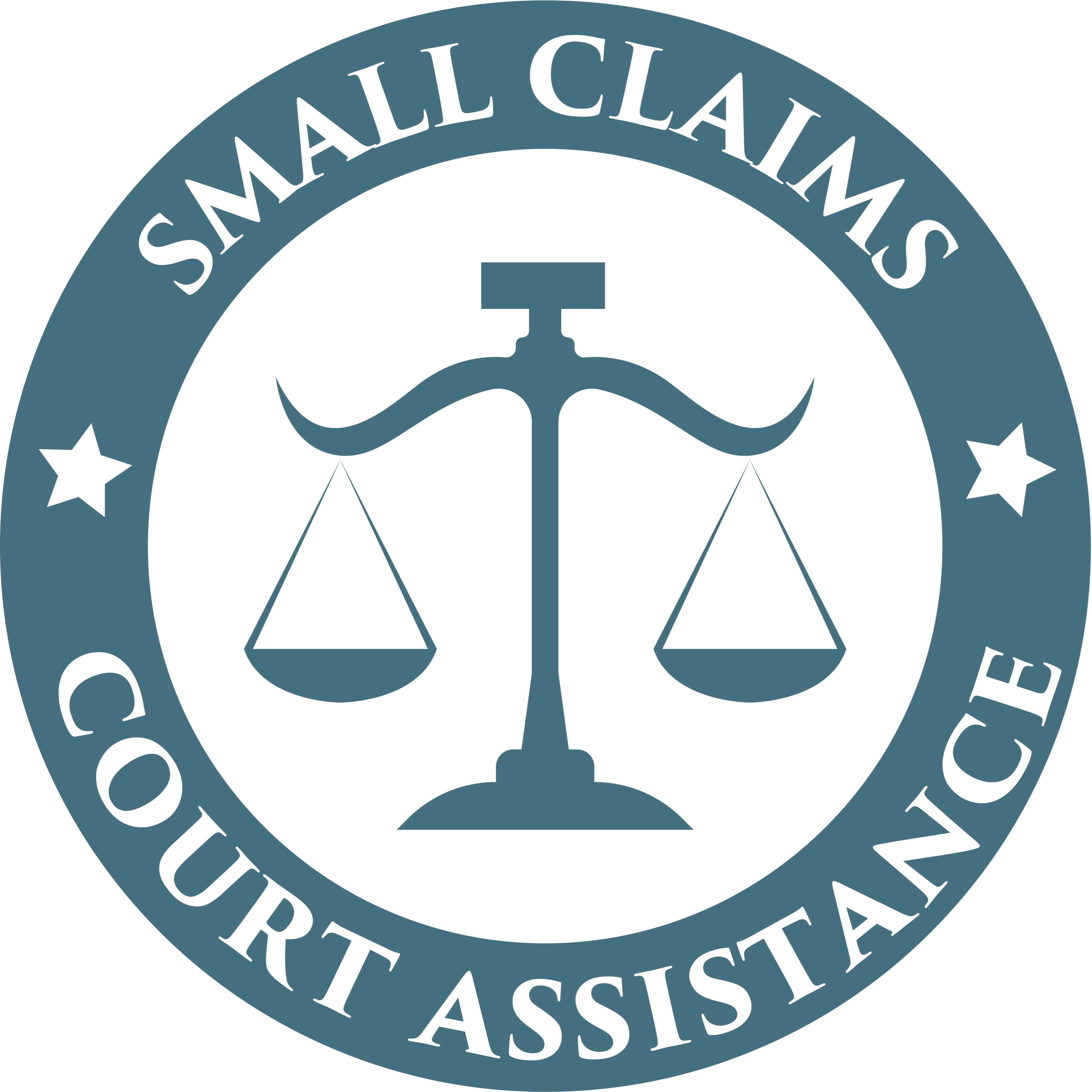As all courts in the country operate independent of each other there is not one speed that the courts uniformly function at. There are many factors when considering how quickly a claim actually reaches the court including the courts case load, staffing situation and restrictions that are placed on the court at a state or federal level. Typically speaking most cases take a minimum of 6 months before a trial or hearing date are set.
Costs to file a claim in small claims court vary by jurisdiction. Most small claims courts have initial filing fees between $50.00 and $500.00. While this is not a large costs to file the claim additional expenses such as process server fees, expert witness costs and time missed from work appearing at hearings can quickly make the costs of filing a suit in small claims court a costly choice.
Small claims court is procedurally less burdensome then bringing a case in a circuit or district court however this often means that litigants are required to make in person appearances whereas attorneys often conduct motion hearings and other processes over the phone. When filing a small claims action plaintiffs must be prepared to physically show up in court when the court sets hearing dates. While some courts may be flexible in allowing them to request new dates, failing to appear at a hearing you are scheduled for may ultimately result in losing your claim rights.
A common misnomer is that winning a lawsuit will force the defendant to have to pay you the money they owe you immediately. This unfortunately cannot be further from the truth. When you win in court you are awarded a judgment. The judgment allows you to take actions further in the court to try to collect but it does not automatically force a defendant to pay you. According to the American Bar Association ABAJournal, “One thing I did not understand was why 80% of the U.S. civil money judgments, year after year, continued to be unenforced, leaving the victims of fraud and malfeasance unable to recover/collect the money the courts have ruled is rightfully their money. That percentage, unfortunately, has essentially remained the same.”
When you file a claim in small claims court you are limiting your claim to that courts maximum claim amount. This can range from $2,500.00 to $10,000.00 depending on where the case is being filed. Many plaintiffs end up limiting their damages because they think filing a claim where they are owed $7000.00 in a court that has a cap at $5000.00 will make the process simpler. What they do not realize is that the process often times is not easier and they have now limited the amount of damages they may have been entitled to.
When a plaintiff files a claim against a defendant in courts within the United States, the defendant must be provided notice of the action to allow themselves an opportunity to defend the allegations. Different courts have different rules as to how you can properly serve a defendant however most require a sheriff, court officer or private process server to physically pass the notice of the lawsuit to the defendant in hand. When a defendant avoids being served by not answering the door or failing to confirm their identity plaintiffs often have to use private investigators who know how to serve even the most unwilling defendants.
Some jurisdictions allow a creditor to file a wage garnishment to collect money when they have a judgment. While this may seem like a surefire way to get paid, most plaintiffs quickly learn that wage garnishments are complicated legal proceedings that if not done correctly will result in nothing but wasted time and court costs. Wage garnishments only apply to individuals that work at a job in a W2 capacity. Most self employed and 1099 contractors can avoid wage garnishments. Even when a garnishment is served to an employer, failing to send the appropriate notices and exemption claims forms can result in the garnishment being quashed or in some circumstances any money withheld returned back to the debtor. Having a competent attorney or collection agency that understands these complexities is the route that should be taken when proceeding on a wage garnishment.
Collection agencies have become a major benefit to creditors that were previously left with the option of going to court themselves or hiring an expensive attorney to handle their case. Most collection agencies collect debt for creditors on a no recovery no fee basis. They will typically charge between 30% and 50% of the recovered amount but only if they actually succeed in collecting. Higher end agencies will also work with attorneys so if the case does require litigation through small claims court, they have assets and experience to ensure that the claim is handled appropriately.
